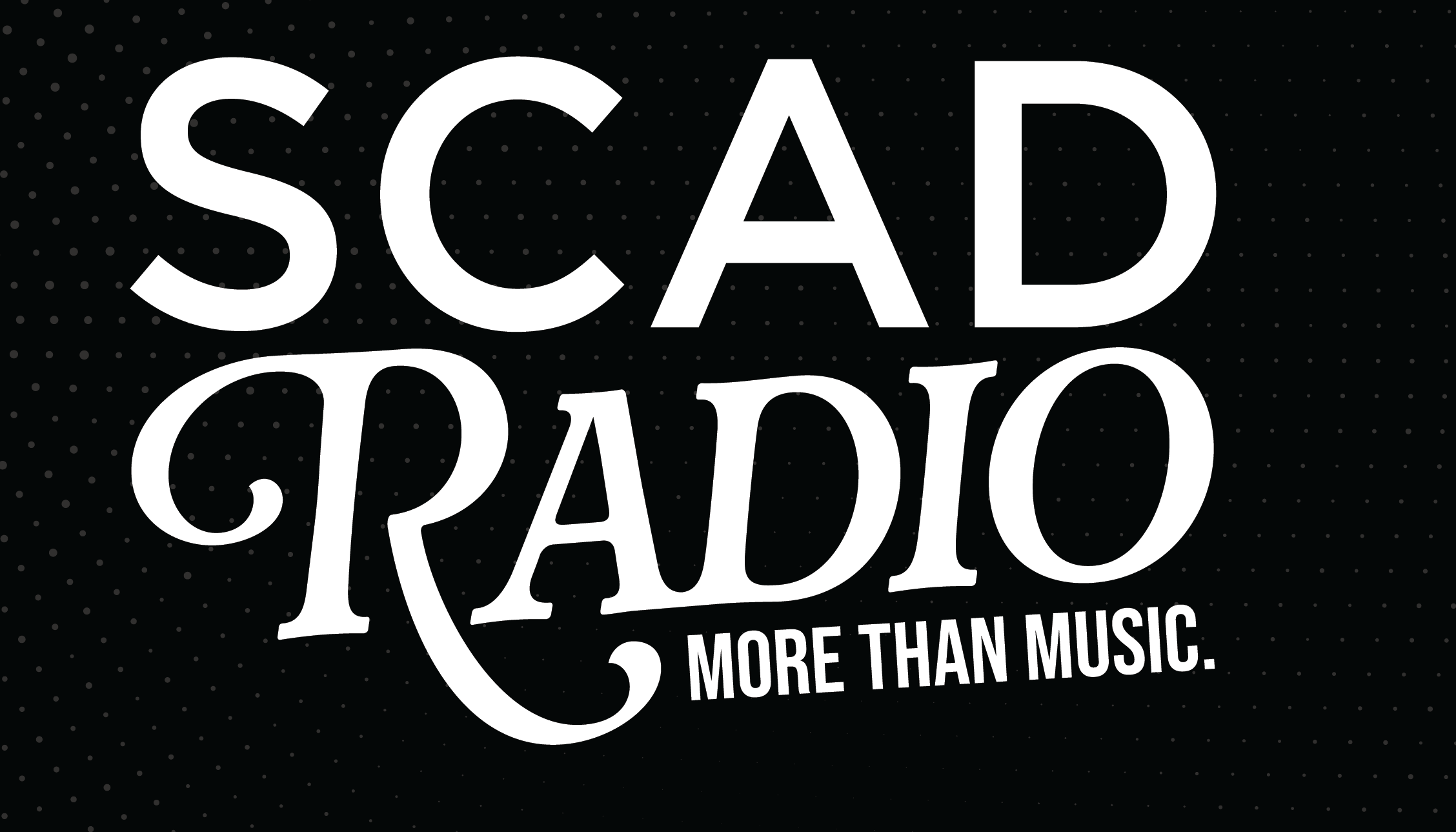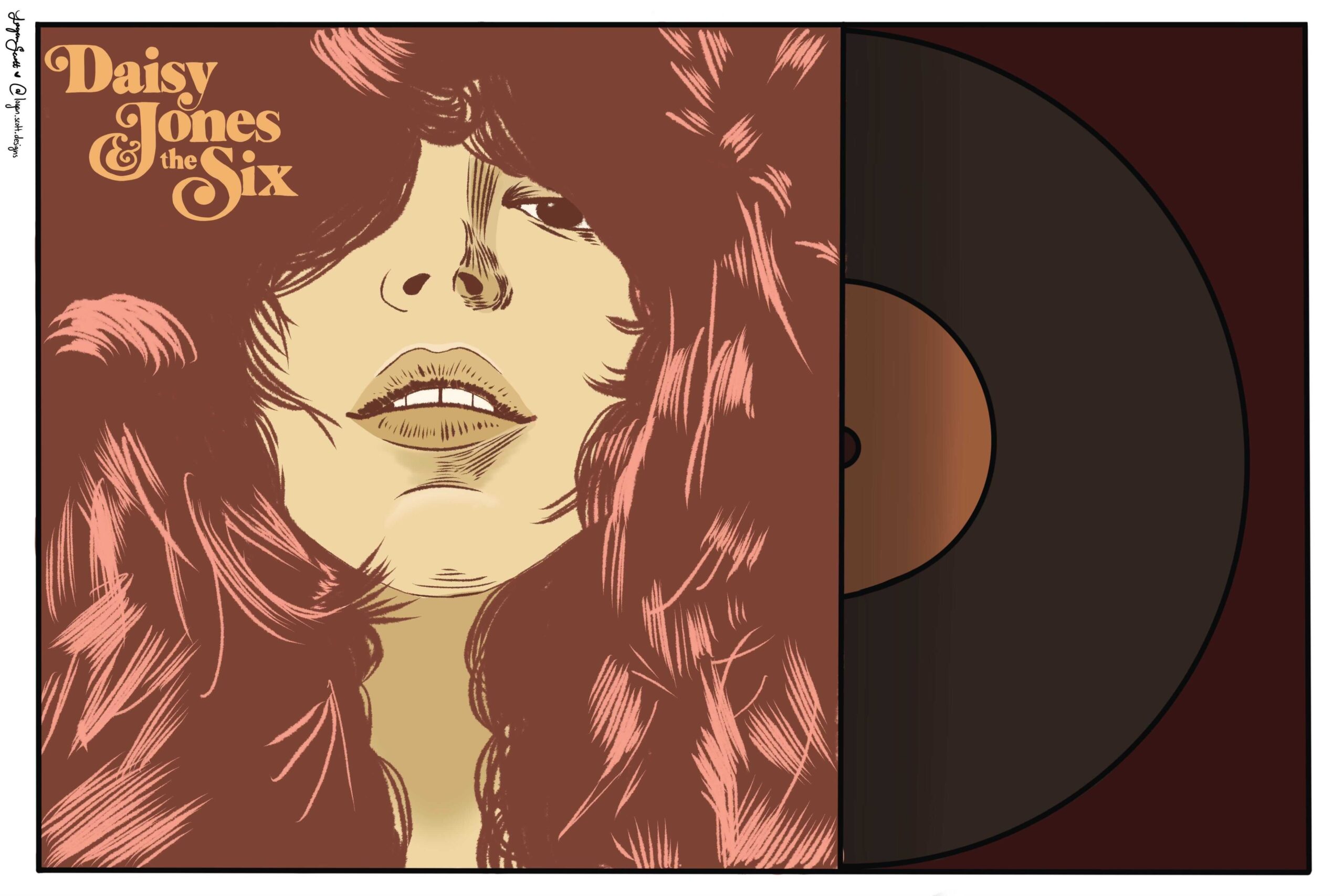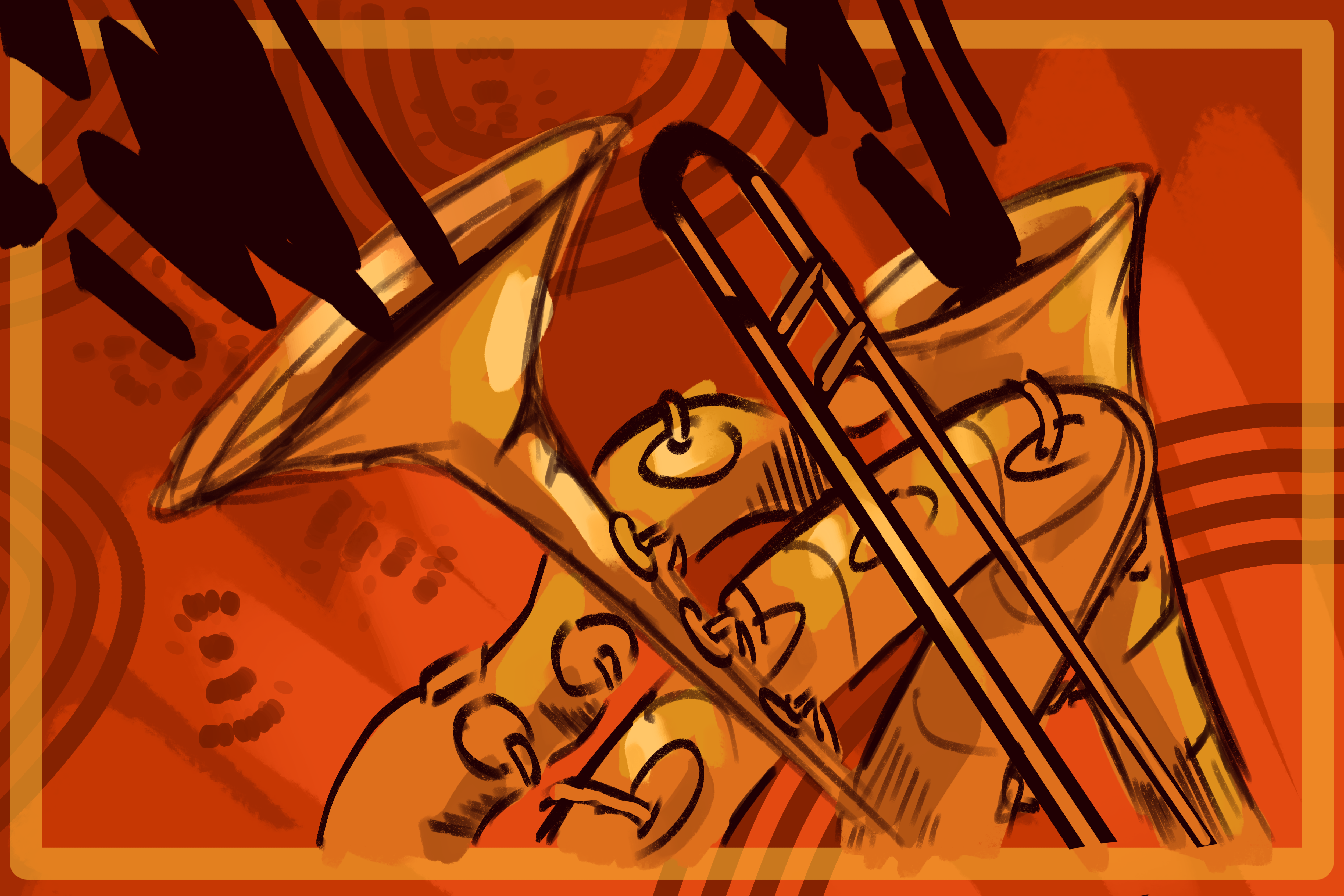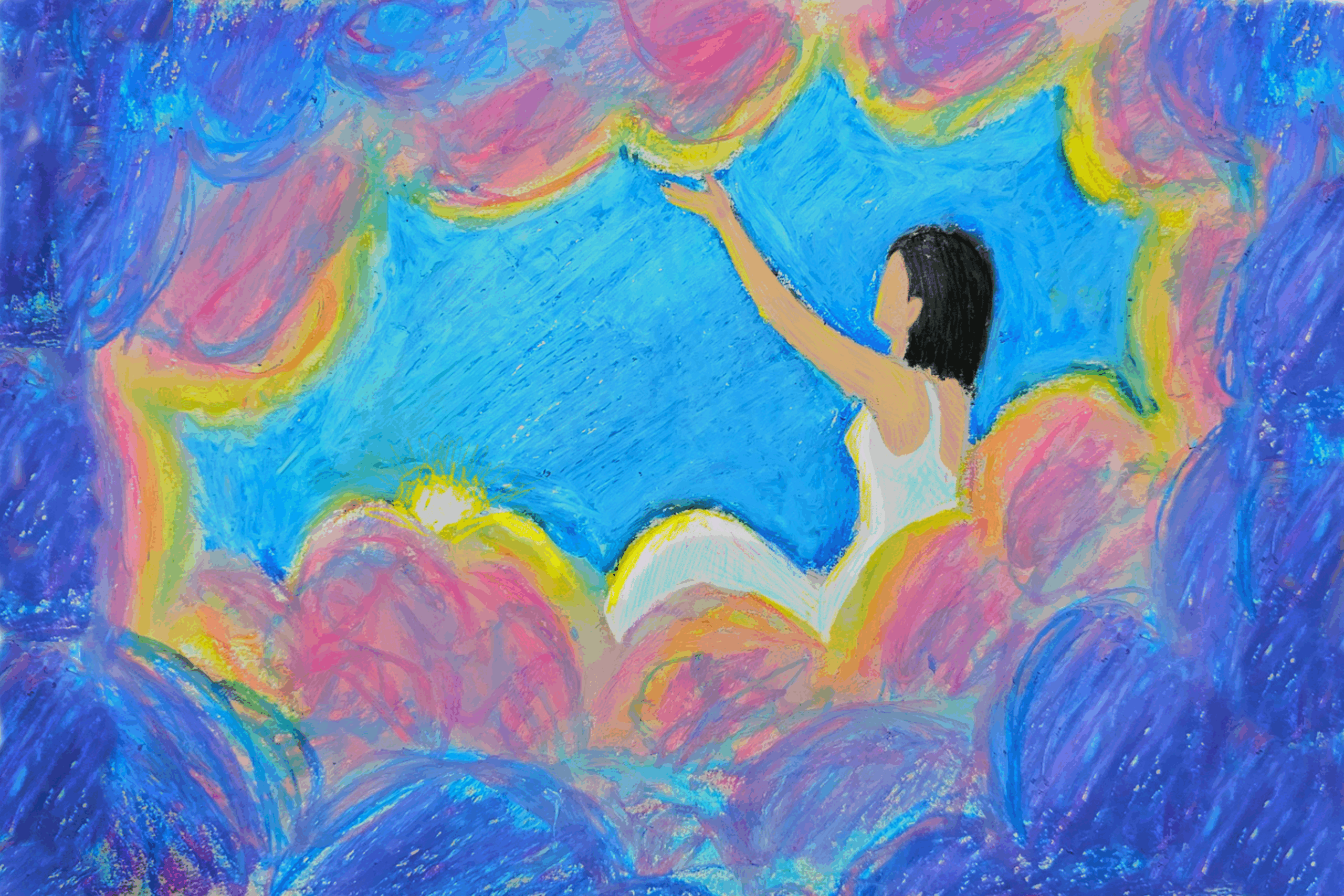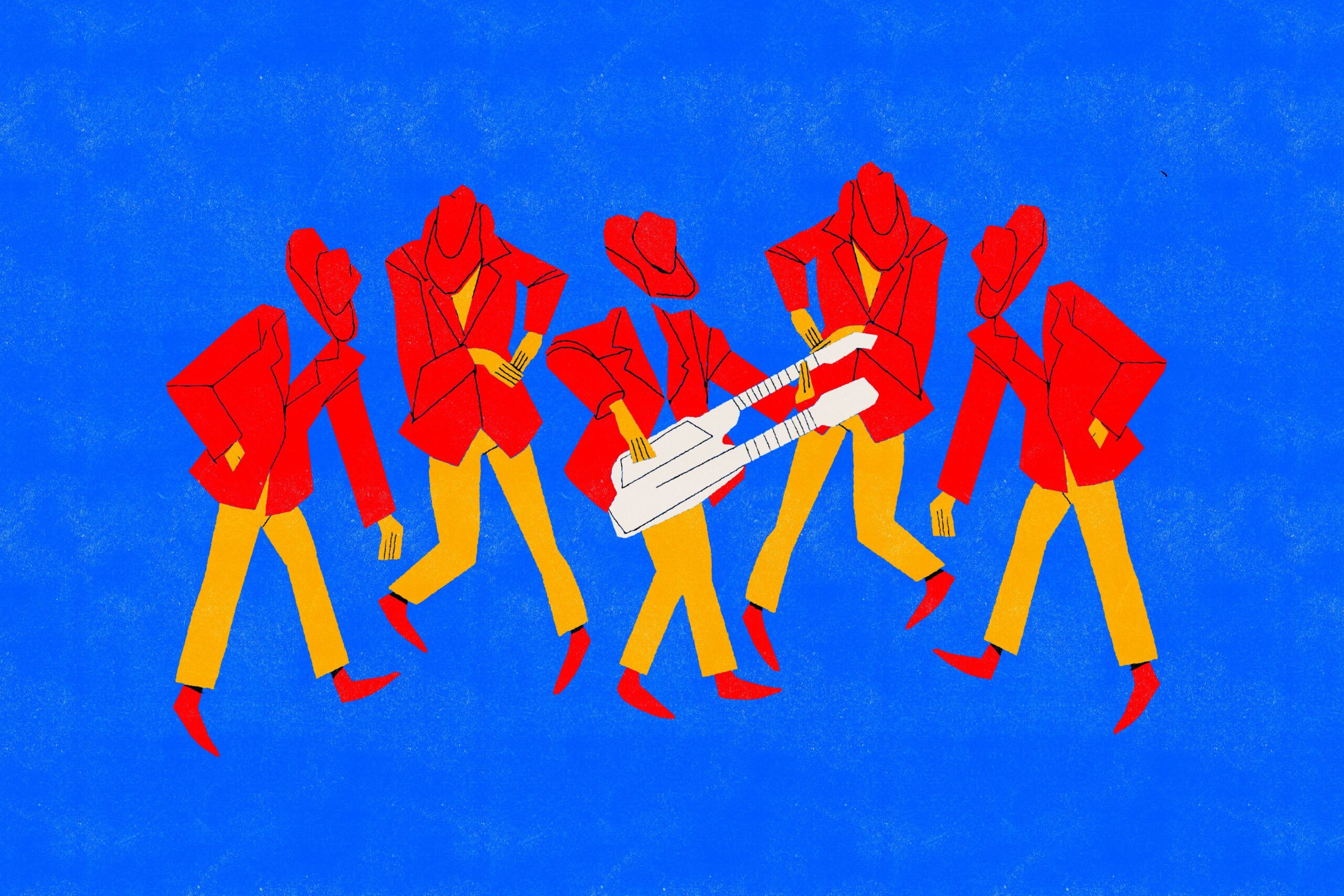If you’re a reader like me, then you know one of this year’s most highly anticipated releases was Amazon Prime’s television series adaptation of Daisy Jones & The Six written originally by author Taylor Jenkins Reid. One of the many unique aspects of this mini-series is the creation of an original soundtrack sung by the cast. While neither Riley Keough (Daisy Jones) nor Sam Clafflin (Billy Dunne) sings professionally, they collaborated on one of the best soundtracks I have heard in a long time.
The album Aurora, on Spotify now under the band Daisy Jones & The Six, captures the sound of the 70s by drawing inspiration from groups like Fleetwood Mac and carries the notable vocal talents of the leads as their voices intertwine over the rock instrumentals. The title track kicks off with an establishment of the back-and-forth Billy and Daisy share. With a catchy tune and lyrics portraying a longing for a lover, it sets the tone for the rest of the album flawlessly.
The second song, “Let Me Down Easy”, isn’t as strong as the previous track lyrically as it places heavy emphasis on the repetitive chorus, but it still packs a punch with its emotional delivery. The leads’ voices combine to take on an argumentative shift from the opening track, you can feel the tension rise as it plays. “Kill You To Try” goes on to push the narrative that the two are coming to a head in their conflict. There is a heavy dose of pleading, furthered by the heavy interruptions of the instrumentals that almost battle the vocalists to be heard.
“Two Against Three” slows things down as Daisy takes on this piece as a beautiful acoustic solo love song. Her lyrics are sweet, straightforward, and elegantly sung. The lyrics “The shell is white and yours to break / Either way, it’s just as well / All I need’s a promise I can keep to myself” are a poetic way of begging the one to which she is singing to make a decision.
“Look At Us Now (Honeycomb)” picks the rhythm back up again as it takes the establishment of a relationship and twists it into a mutual acknowledgment of their poor luck in love. Once again, it is not the strongest lyrically but it possesses an instrumental prowess that reclaims the strength of the song. Of course, “Regret Me” surges as the most rage-filled piece that sums up the dynamic between Billy and Daisy. It comes as no surprise that this was the first single released because it serves as one of the strongest, not only for the compelling lyricism but for the presentation of their combined emotional entanglement.
“You Were Gone” follows the storyline from unrest and tension into a stage of acceptance which is immediately turned around by the following track entitled “More Fun To Miss”. It is an intense, scream-worthy song with intense instrumentals and an insane buildup that had me blasting it in the car. It is a stand-out piece on the album and executes the pent-up anger on Daisy’s side of the story. Needless to say, it is one of my favorites on “Aurora”.
“Please”, as someone who read the book, is by far the most frustrating track. Billy is the leading voice of the song as he sings about his struggles with vices of lust and addiction. He is pleading with himself and the subjects of the song not to tempt him to betray himself and his family. The piano and hard-hitting beats undoubtedly make for one of the wildest performances.
“The River” and “No Words” finish off the album strong as notable cast favorites and the closing track reflects the ending of the book/series itself as being somewhat melancholic. Much like in the song, the resignation of the characters to their moral quandaries closes with them parting ways. The fade out with the instrumentals leaves the listener hungry for more, with no choice but to listen to the whole thing all over again and relive the story of Daisy Jones and The Six.
Favorite Tracks: “Two Against Three”, “More Fun To Miss”
Least Favorite Tracks: “Let Me Down Easy”, “You Were Gone”
